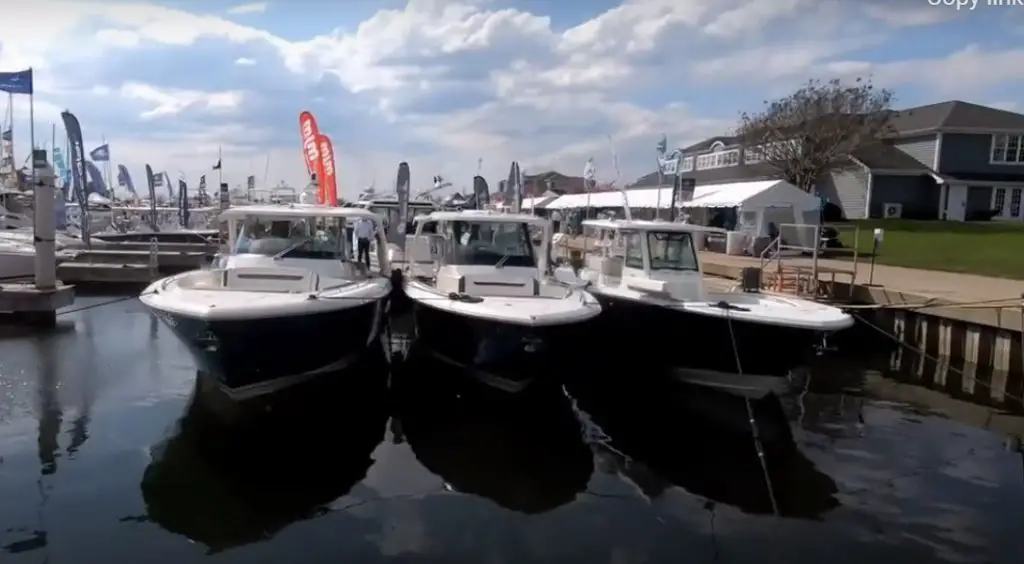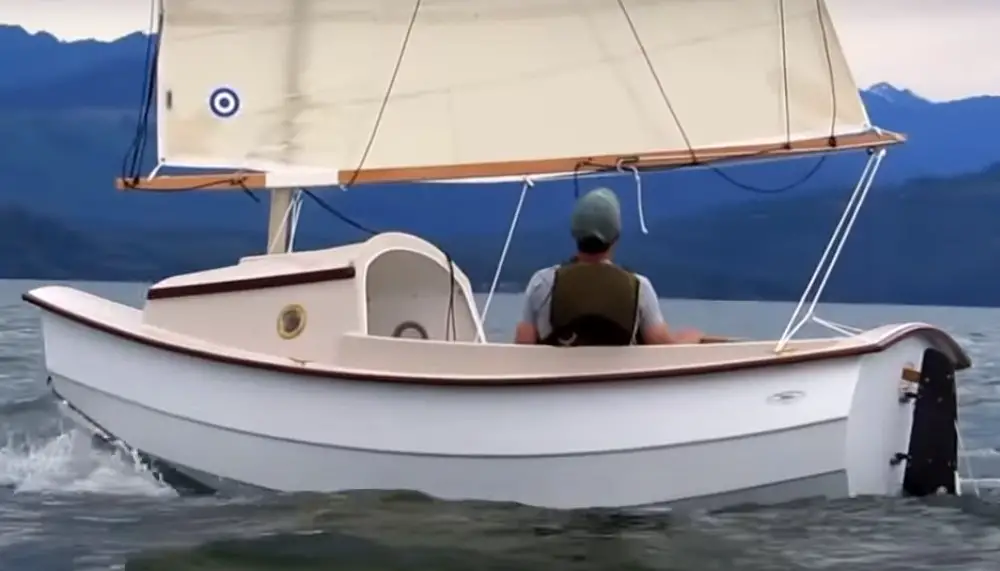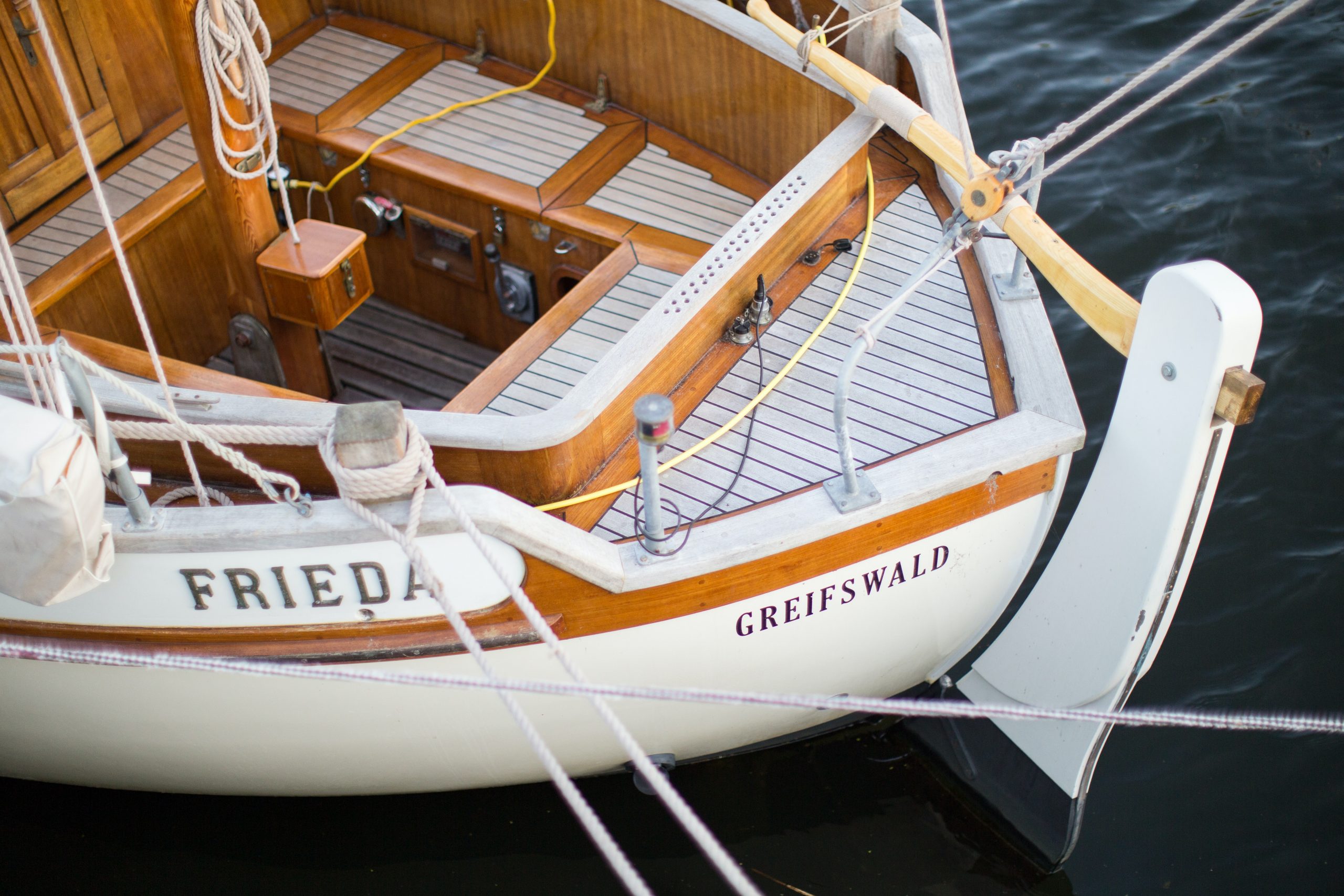So, you have given a lot of thought to buying a used boat and maybe you have your eyes on one or two vessels in particular. But perhaps you still have some questions about used boats in general that you can’t get out of the back of your mind. Where to go from here?
As a professional mariner who has sailed on many different old boats and witnessed the good, the bad and the ugly, as well as someone who has bought and sold a number of used vessels myself over the years, I put together a series of articles to help new boaters develop a better understanding about old boats.
This article picks up where we left off with our previous guide, “The Complete Guide to Old Boats”, by taking a closer look at the most frequently asked questions I have gotten over the years from first time boat buyers who are thinking about buying a secondhand boat.
In this article, we explore those common questions new boaters have in the back of their minds – like “why should I buy an old boat rather than a new one?”, “what kinds of older boats make good investments and what kinds of older boats should I stay away from?”, and “where can I find a great deal on a used boat?”, along with other top questions we hear all the time.
It doesn’t take a professional mariner to buy a good old boat. But a boat can be a large investment, and it takes a lot of knowledge to move forward with confidence. If you are interested in an old boat but still have a few questions, this guide should help you prepare to take the next step.
Why Should I Buy an Old Boat Instead of a New One? The Advantages to Older Vessels

There are many many reasons that it might make sense to buy an older boat rather than order a new one from the builders. Many buyers prefer older boats for their unique character, their robust construction or their seaworthy characteristics. Some buyers choose an older boat as an interesting way to own a piece of history. Most boaters I have met chose a used boat for one of the top three reasons: money, time, and sustainability.
Building a new boat requires a whole lot of time and energy. A boat is a complex object to put together properly, and even most high production boatyards need months to complete a large vessel. Many boats take years to finish construction. As a result, most high quality builders have a long list of clients waiting for their dream vessel. You could wait years just for the builder to begin construction.
That’s a long time, especially if you are like me and want to get out on the water now. On the other hand, by choosing to purchase a well maintained used vessel, it’s possible to get out sailing in a matter of days or weeks.
Another popular reason people choose to purchase an old boat instead of ordering a new one is due to environmental concerns. A new boat requires a whole lot of new materials to construct – wood, fiberglass, steel, aluminum, carbon fiber, plastic, rubber, epoxy, glue, paint…the list goes on and on. Producing many of these materials has a harmful impact on the environment. By “recycling” an older boat rather than buying a new one, we can cruise with a much smaller environmental footprint.
Boaters are fortunate to be able to enjoy one of the most beautiful environments on the planet – the oceans – and it’s our responsibility to take care of them too. Some older boats are perfectly capable of cruising in safety and comfort for decades to come, so why build a new boat when an older vessel can do the job just as well?
The final and most important reason for most buyers to choose a used boat is that it costs a whole lot less than building a new one. My own vessel is an excellent example. I bought my vessel a few years ago for $50,000 USD after importing the boat from Canada and paying for a small refit. This felt like a lot of money at the time, but compared to the $400,000 USD price tag that I was quoted to build the same exact design new, that’s a steal.
Most older boats are sold for a fraction of the cost to build the same vessel today. Part of that is the exorbitant prices for building materials right now, and part of that is that there are so many excellent deals out there for really nice used boats.
As you can see, the quickest, cheapest and most environmentally friendly way to get on the water is to buy a used boat. And there has never been a better time to get out on the water than today, that’s why a record number of people bought their first boat in 2020. I believe even more will join the club in 2021.
What Kind of Older Boats are a Good Investment and Which Ones Should I Avoid?
There is definitely the right kind of old boat to buy and a type of old boat to stay away from. Let’s begin with old boats to avoid. The first type of old boat to avoid is a serious project boat. By project boat I don’t mean a boat that could use a few upgrades, I mean a boat that needs to be totally overhauled from head to toe.

There are countless boats like this advertised on facebook and craigslist for very cheap or even free. Usually these vessels are acquired by someone who plans to fix them up and go cruising a few years down the line, saving a boatload of money along the way, but it rarely works out that way in the end.
Boats like this almost always end up rotting in a backyard somewhere and never seeing the open sea again. The reason is that a boat that far gone has to be rebuilt almost like an entirely new boat, and building a new boat yourself is a massive undertaking that requires thousands of hours of work and a lot of money.
No matter how hard you negotiate to buy cheap materials, most project boats end up costing many times the expected amount of money to fix, and take far longer than anyone expected to finish. 99 percent of the time the project is abandoned long before the boat is ready to sail. The boat ends up retiring as a lawn ornament.
The next type of old boat to avoid is a boat that was cheaply constructed to begin with. Some boats were never built to last for more than ten or fifteen years. Many cheap coastal cruisers were just fine for gunkholing around the bay for a few years, but by the time a few decades have passed, their integrity is just too far gone to be sailed safely anymore. A lot of older Hunters and Catalinas fall into this category.
They were fine boats for what they were built for, but the intention was never to last forty or fifty years. There is little point in trying to restore a vessel that has no value left.
On the other hand, some boats built thirty, forty or even fifty or more years ago are sailing along as happily as good as new. Some excellent examples are boats that were constructed by famous high quality boatyards like Fisher, Pacific Seacraft, Nordic Tug, Hallberg Rassy, Sparkman and Stephens, Valiant and Swan, among many others. Many of these boats could be sailing past their 100th birthday, if they are given the care and attention that they deserve.
Where Do I Look to Find an Amazing Deal on a Used Boat?
The easiest place to search for a used boat these days is on the internet. You can use websites like yachtworld.com, sailboatlistings.com, and even craigslist or Facebook to find some really great deals on older boats all over the world.
In my experience, the best deals can be found with boats that were refitted for a long cruise, but then the owner changed their mind somewhere along the way. It happens all the time – a couple had the dream to cruise the world but discover after a few months or a few years that this isn’t really the lifestyle they want. Often the owners want to get home as fast as possible and will accept even ridiculously low offers just to get the boat off their hands.
The best part about buying a boat like that is they are usually well cared for and set up with lots of equipment for cruising like windvanes, solar panels, wind generators, watermakers, electronics, that kind of thing. The boats are usually pretty strong and seaworthy too, because they were purchased specifically for long distance cruising.
The disadvantage to buying a boat this way is that you usually have to travel pretty far to get it back home, and of course you have to deal with the difficulties of importing the boat back into your home country. It can be a challenge to organize a proper survey in a remote port as well.
Clearly this technique can’t work for everyone, but if you have the time and patience to pull it off, you can get your hands on a really great boat for an excellent price by checking out ports along the popular world cruising routes. I discuss this technique in more detail in our previous article, “The Complete Guide to Old Boats”.
Back home in the states, I look for deals online where the owner is eager to get rid of the boat. Sometimes marinas auction off abandoned boats or boats who’s owners didn’t pay their slip fee for next to nothing. You can also try to buy boats seasonally – a boat in a northern state will usually sell for a lot less in the middle of winter than it would at the height of cruising season.

As you can see, there are many ways to find a great deal on an old boat if you think outside the box and have some patience to wait for the right opportunity to come your way.
Should I Use a Broker or Buy Directly from the Previous Owner?
This is a very good question, and the answer depends entirely on who you are and how extensive your knowledge is in old boats. For me, I am the kind of guy who likes to do all my own research and figure out exactly what I want by myself. I absolutely hate it when I’m shopping at one of those stores where somebody asks if I need help every five seconds, and I usually buy and sell boats without the use of a broker whenever possible.
That said, I can definitely envision certain circumstances where a broker could really help someone find that perfect boat, which they may not be able to locate themselves.
I think the key here would be finding a broker who you can trust – both to be very knowledgeable about the kind of boat you are looking for, and whom you can trust to give you a reasonable price for their services. Depending on the brokerage, typical broker fees fall between five and fifteen percent of the boat’s selling price.
For a high quality yacht, that can be a lot of money. That’s why if you do choose to hire a broker, it’s important to work with someone you trust not to rip you off. Far too many people in the business will do anything to close the deal on the first boat that you look at – that way they can pocket their fee and move on to the next client.
What you want is a broker who will work with you as long as it takes to find the right vessel, even if that means taking more time and traveling longer distances to locate the perfect boat.
What Material is Best for an Older Boat?
It’s well understood that certain materials hold up better over long periods of time in the marine environment than others. I think that in general, fiberglass tends to do well even after many decades because it doesn’t rot like wood and it doesn’t rust like metal. That’s why if I were buying a boat over twenty or thirty years old I would tend to lean towards fiberglass vessels.

If you do go with an older fiberglass vessel, keep in mind the potential for blisters to develop in boats built before 1985, and don’t forget to check the deck and hull (especially if it’s cored) for delamination and water intrusion.
That said, there are fine examples of wooden, metal, and even ferrocement boats that have held up just fine for many decades – it’s a matter of quality construction and proper maintenance over the years.
Is an Older Boat Worth It? Final Thoughts on Buying a Good Old Boat
For the average boater, the fastest, cheapest and most logical way to get out on the water with your family is by purchasing an old but well found boat. Especially today, as the high construction and material costs of building a new boat becomes ever more out of reach, it makes more sense than ever to buy an old boat.
Right now, there are thousands of excellent older boats that can be purchased for a very reasonable price, and if you do your research right, you should be able to re-sell the same boat for the same price or even more down the line.
Now if you’ll excuse me, I’ve got some used boat shopping to do.
If you are considering buying an older boat, but still need a little more inspiration to find the right design for you, keep your eyes out for our next article in the series, “Four Great Older Boats That Can Take You Anywhere”.
As you continue your journey through the world of boating, don’t forget to subscribe to the SailAndProp.com newsletter to get all your favorite boating articles sent right to your inbox. It’s the easiest way to keep up to date on all our most recent news and content, and the best thing is it doesn’t cost a thing – so sign up today! You’ll be glad you did.

